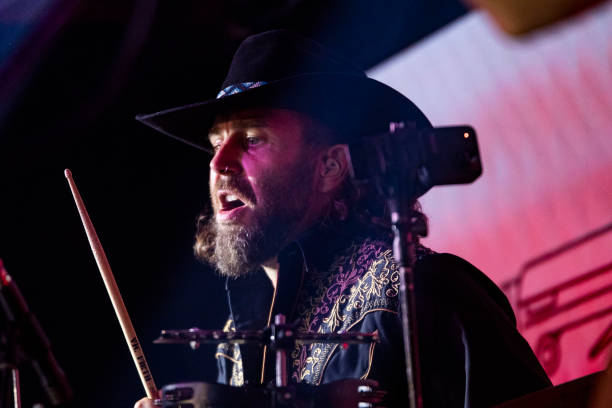A drummer is the unsung hero of a band, playing a pivotal role in shaping the music and guiding the ensemble through every beat, rhythm, and dynamic shift. Often described as the heartbeat of a band, drummers provide much more than just a steady tempo. They are the foundation of cohesion, the energy behind the performance, and the subtle architects of a song’s mood and structure. Without a skilled drummer, even the most talented musicians can falter.
The role of a drummer in a band transcends the simplistic notion of “keeping time.” Instead, it encompasses creativity, collaboration, and the ability to adapt to various genres and musical styles. Drummers don’t just play rhythms—they create an environment where music flourishes.

Drummers as the Foundation of a Band
The drummer’s ability to keep time is their most obvious responsibility, but it’s far from their only one. Their rhythm provides a framework upon which the rest of the band builds. Every guitarist’s riff, vocalist’s melody, and bassist’s groove relies on the drummer’s consistent beat. This is particularly evident during live performances when split-second timing can make or break a song.
But timing is just the tip of the iceberg. A drummer’s role involves controlling the dynamics of a performance. By adjusting the intensity, tempo, and style of their playing, they set the mood of a song. Whether creating a slow, haunting atmosphere for a ballad or an energetic pulse for a rock anthem, drummers have the power to evoke emotions and captivate audiences.
The role of a drummer in a band is further amplified during transitions within songs. Drum fills, tempo changes, and rhythmic accents help signal shifts from verses to choruses or from bridges to climaxes. These transitions add excitement and keep the music engaging, showcasing the drummer’s ability to shape the overall structure of a piece.
The Importance of a Drummer in Live Performances
Live performances are where a drummer’s skills truly shine. In these high-pressure environments, drummers are responsible for ensuring the band stays synchronized and maintaining the energy of the performance. They are the pulse of the show, delivering powerful beats that reverberate through the venue and connect the band to the audience.
Creating a Captivating Experience
In live settings, the drummer’s energy sets the tone for the entire performance. From the explosive intros that grab attention to the intricate rhythms that keep audiences engaged, drummers are essential for creating a memorable experience. Their ability to adapt to the crowd’s energy and respond to the dynamics of the performance is what makes live music feel alive.
Iconic drummers like Keith Moon of The Who and Taylor Hawkins of Foo Fighters have demonstrated the impact a drummer can have during live performances. Their dynamic playing and energetic presence brought unparalleled excitement to their band’s shows, leaving audiences mesmerized.
Drummers also have a unique ability to connect with the crowd through their movements and stage presence. The physicality of drumming, combined with their expressive playing style, creates a visual spectacle that enhances the performance.
Drummers as Collaborators and Creators
The role of a drummer in a band is not confined to the stage or studio. Drummers are active participants in the creative process, contributing ideas for rhythms, song structures, and dynamics. Their understanding of timing and patterns allows them to offer insights that can elevate a song from good to exceptional.
Drummers also play a crucial role in fostering collaboration within the band. As part of the rhythm section, they work closely with bassists to create grooves that form the backbone of a song. This partnership requires an intuitive understanding of each other’s playing styles, creating a seamless blend of rhythm and harmony.
Bridging Rhythm and Melody
Beyond their collaboration with bassists, drummers serve as the bridge between rhythm and melody. By maintaining a steady tempo, they enable vocalists, guitarists, and other instrumentalists to explore creative freedom. The drummer’s consistency provides a safety net that allows the rest of the band to push boundaries without losing cohesion.
Drummers are also skilled communicators, both musically and interpersonally. Their ability to listen and respond to subtle cues from their bandmates ensures that the group remains cohesive, even during improvisations or unexpected changes.
The Evolution of Drumming in Modern Bands
The role of a drummer in a band has evolved significantly over time. While traditional drumming focused primarily on rhythm and timekeeping, modern drummers are multifaceted musicians who contribute to various aspects of a band’s identity.
In genres like jazz and progressive rock, drummers are celebrated for their technical prowess and creative flair. Players like Buddy Rich and Neil Peart have pushed the boundaries of what drumming can achieve, inspiring generations of musicians. In contrast, drummers in pop and electronic music often integrate technology, using drum machines and samples to create innovative sounds.
Drummers also embrace versatility, adapting their playing style to suit different genres. A jazz drummer might rely on subtle brushwork to create intricate textures, while a metal drummer employs double bass pedals for high-intensity beats. This adaptability makes drummers indispensable in today’s diverse musical landscape.
Beyond the Kit: Drummers as Leaders
The role of a drummer in a band often extends beyond their instruments. Many drummers take on leadership roles, guiding rehearsals, organizing schedules, and influencing the band’s creative direction. Their ability to balance technical skill with big-picture thinking makes them natural leaders within the group.
Drummers also excel at creating a strong connection between the band and its audience. Their physicality and expressive playing style make them a focal point of live performances, drawing attention and adding to the band’s overall charisma.
Building Connections
Through their music and presence, drummers help build a sense of connection—both within the band and with their audience. Their beats resonate on a visceral level, making listeners feel the music in their bones. This connection is what makes live music so powerful and memorable.
FAQs
What is the role of a drummer in a band?
The drummer provides rhythm, maintains tempo, and enhances the dynamics of a performance. They are the foundation upon which other instruments rely, ensuring cohesion and energy in both live and studio settings.
How do drummers contribute to live performances?
Drummers drive the energy of live performances, delivering powerful beats that connect the band with the audience. They also ensure the band stays synchronized, creating a seamless experience for listeners.
What makes a great drummer?
A great drummer combines technical proficiency with creativity, adaptability, and strong communication skills. They balance precision with artistry, making them invaluable to any band.
